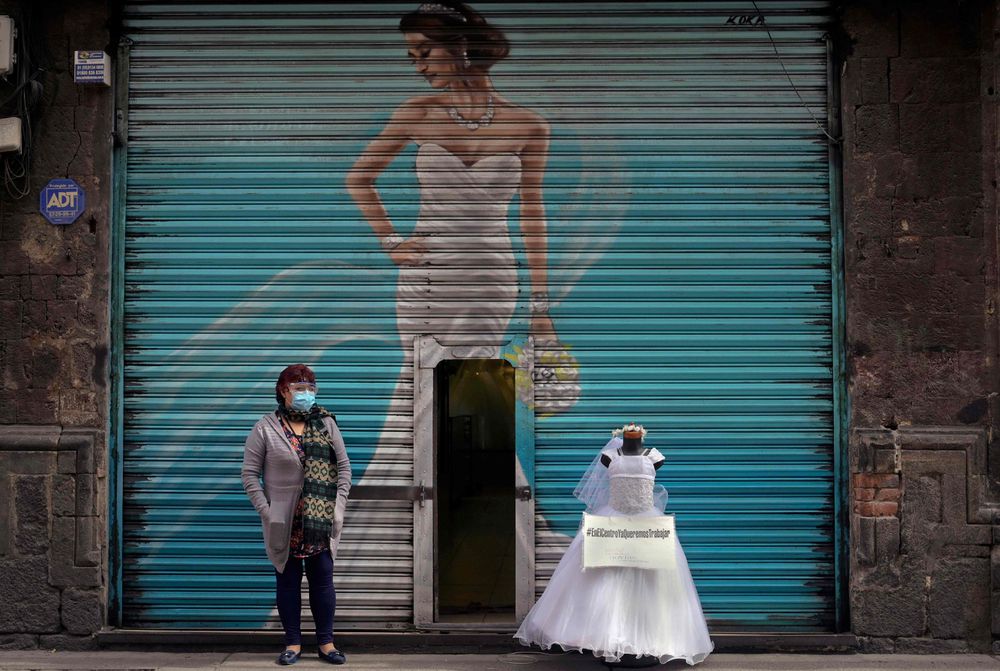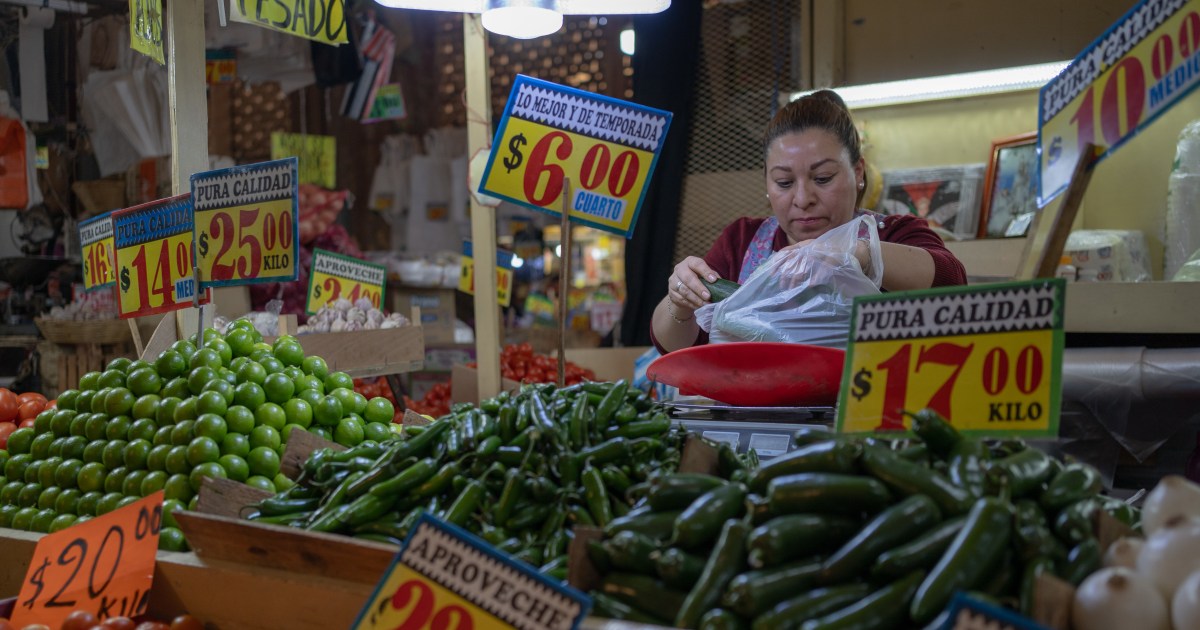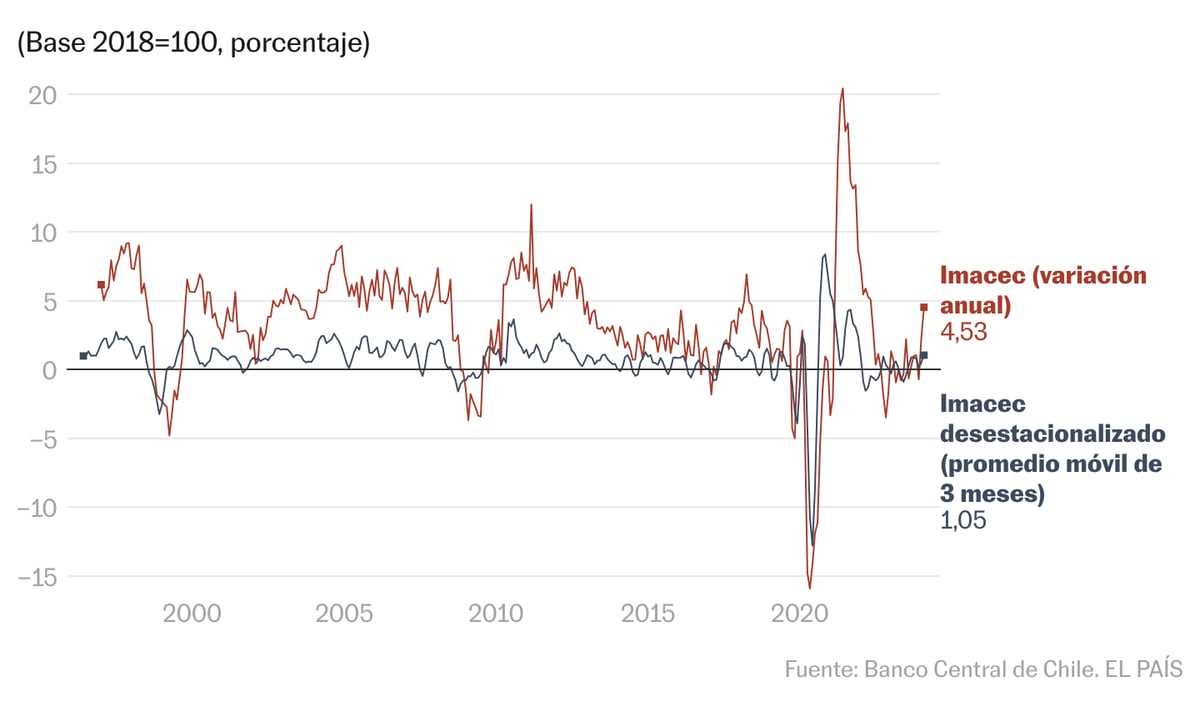With more than 20,000 deaths from coronavirus, Mexico City is the city in the country, by far the most affected by the pandemic.
For its inhabitants, the empty streets are unrecognizable.
As hospitals overflow at peak admissions and medical personnel plead for the equipment necessary to operate, businesses are dying daily due to a kind of second mandatory lockdown.
The government of the city, however, has followed the federal line, offering economic support that those affected consider insufficient and that, compared to other cities in Mexico and abroad, make the capital look bad.
A study published by the Organization for Economic Cooperation and Development (OECD) compiles the amounts granted in economic aid by different cities in the world, as well as actions taken.
Cities that depend heavily on tourism, such as Paris and Tokyo, have launched programs that attack the extremely high unemployment in this sector, from hospitality to art and entertainment.
In Mexico City, however, hardly any support has been offered to these economic activities, aggravating the fall in its gross domestic product (GDP).
The aid that the Government of Claudia Sheinbaum has given in the last 10 months is as small as 832 pesos (42 dollars) per month to minors who lost a father or mother due to covid-19, up to a maximum of 5,282 pesos ( 268 dollars) as unemployment insurance to a limited list of beneficiaries.
The rest of the support was cut with the same scissors as the support of the federal government, Andrés Manuel López Obrador.
Companies in the city were able to apply for a “microcredit” of 10,000 pesos ($ 508), and parents received small “advances” to spend on school supplies.
His strategy to keep the economy afloat and create jobs focused on boosting investments in infrastructure that were already planned in the Administration.
As a consequence, the service sector suffered a severe blow.
The entity's GDP, the one that contributes the most to national income, fell by 16% in the third quarter of last year and it is estimated that at the end of 2020, the economic contraction will be 6.8%.
“The support has existed, but it has been somewhat limited,” says Héctor Magaña, professor at the Tec de Monterrey Business School, “we have seen it recently in the employment data of the formal sector where there were important contractions in the number of small and medium-sized companies that are located particularly in Mexico City ”.
In response to a request for comment by the city government, the communication office sent EL PAÍS a document detailing all the actions taken in support of the economy due to the pandemic, without issuing a comment.
World capitals
The cultural offer of the city is one of its main tourist attractions.
It is one of the capitals with the most museums in the world and one of the most varied offers in entertainment, with theaters and amusement parks.
However, and unlike other capitals in the world, the city government did not offer support to employees in these sectors.
Paris, according to the report published by the OECD, channeled direct aid to artisans, cultural companies and young innovative companies for an amount of 6 million euros (7.3 million dollars) and another 5 million euros (6 million dollars). Dollars).
In Mexico City, in contrast, the culture and entertainment companies did not receive support and some artisans, those of indigenous origin, could apply for a one-time grant of 1,500 pesos ($ 76) last year.
Madrid approved a recovery plan for cultural institutions and activities, called “Plan Aplaude Madrid”, endowed with 7.5 million euros (9 million dollars) to subsidize spaces dedicated to contemporary art,
performance
and cultural exchange.
The City Council extended a 25% reduction in the Real Estate Tax and the Economic Activities Tax and, to create jobs, they will allocate 2.2 million euros (2.7 million dollars) to renovate a theater and a cultural center, both emblematic of the city.
In Mexico City, the Government only condoned the payment of taxes from 658 businesses located in the Historic Center, and only for the month of January.
London, in the United Kingdom, also allocated 2.6 million euros (3.2 million dollars) to rescue cultural centers and creative industries.
Tokyo, the Japanese capital, developed a subsidized program that pairs hotels that offer telecommuting facilities with employees who cannot telecommute at home, designed to keep the hotel sector afloat.
Even within the same Mexican Republic, Mexico City granted less aid compared to the other two large entities, in terms of population of their capital cities.
In Nuevo León, the state government waived the tax on the payroll of companies that required it and offered credits of up to one million pesos (50,800 dollars) per company.
To cultural spaces and artistic education centers, it offered specific financial support.
In Jalisco, the local Executive offered loans, as did Mexico City, but the amounts were much higher, reaching 190 thousand pesos (9,700 dollars) per company.
The governments of both entities, which concentrate the second and third largest cities in the country, belong to the political opposition of Morena, the party in power in Mexico City and at the federal level.
According to a report from the consulting firm PwC, the entertainment sector could contract this year by 6.4% in the country, higher than the contraction of 5.6% projected globally.
Sheinbaum gives in to pressure
Weeks before Christmas, the number of infections and hospitalizations rose to alarming levels in Mexico City, for which the Government once again forced the closure of non-essential establishments including restaurants, an activity that employs 2.1 million people directly and indirectly.
The restaurateurs responded with pressure to the Government, even announcing that despite the restrictions due to the pandemic they would open their stores.
The Executive responded, first, offering dialogue.
In a meeting with the heads of the economy, tourism and government of Mexico City, representatives of the restaurant owners agreed to open on reduced hours and exclusively with outdoor tables.
Later, the government announced one-time cash support, the first since the pandemic began, of 2,200 pesos (about $ 110) per worker.
The support amounts to 220 million pesos (11 million dollars).
Like the other support programs, this one sold out in a couple of days.
“As a result of the protests carried out by the restaurant sector, the government carried out emergency support for the people who work within this industry,” points out Magaña, “however, the rest of the industries, particularly the service sector, both accommodation and entertainment and recreation are not contemplated ”.
The Chamber of Commerce, Services and Tourism in Small Mexico City (Canacope CDMX) estimates that the economic impact of unrealized sales from March 2020 to date amounts to more than 155,250 million pesos.
In a statement, the association proposes seven specific actions to the government, including the cancellation of local taxes and establishing a protocol that accredits companies that ensure that their employees are not carriers of the coronavirus.
"The foregoing is necessary to maintain minimum conditions of economic stability, jobs and investments," says the statement.
In line with the federal Executive
The strategy of going ahead with infrastructure projects as a bet to create jobs during the pandemic of the Sheinbaum government is in line with the national strategy of President López Obrador, says Magaña.
“In the particular case of Mexico, it is one of the countries that has given the least support to the economic management of the pandemic.
In Latin America we have an average of 5.1% of GDP in aid and in Mexico, the aid earmarked barely reaches around 1% of GDP. "
"The economy of Mexico City reflects the current situation of the country, there is a major recession," says Magaña.
“It is possible that as the vaccination campaign progresses, this economy will have a significant rebound, but it will not recover in the following year to the levels we had prior to the pandemic.
It will take, indeed, between 3 and 4 years to recover, ”he added.






/cloudfront-eu-central-1.images.arcpublishing.com/prisa/GSAG3AFDE5GZ7CR5RU42LT63UM.jpg)

/cloudfront-eu-central-1.images.arcpublishing.com/prisa/QTVF3EOGLFBTPJL3YXHGH4CEFE.jpg)






